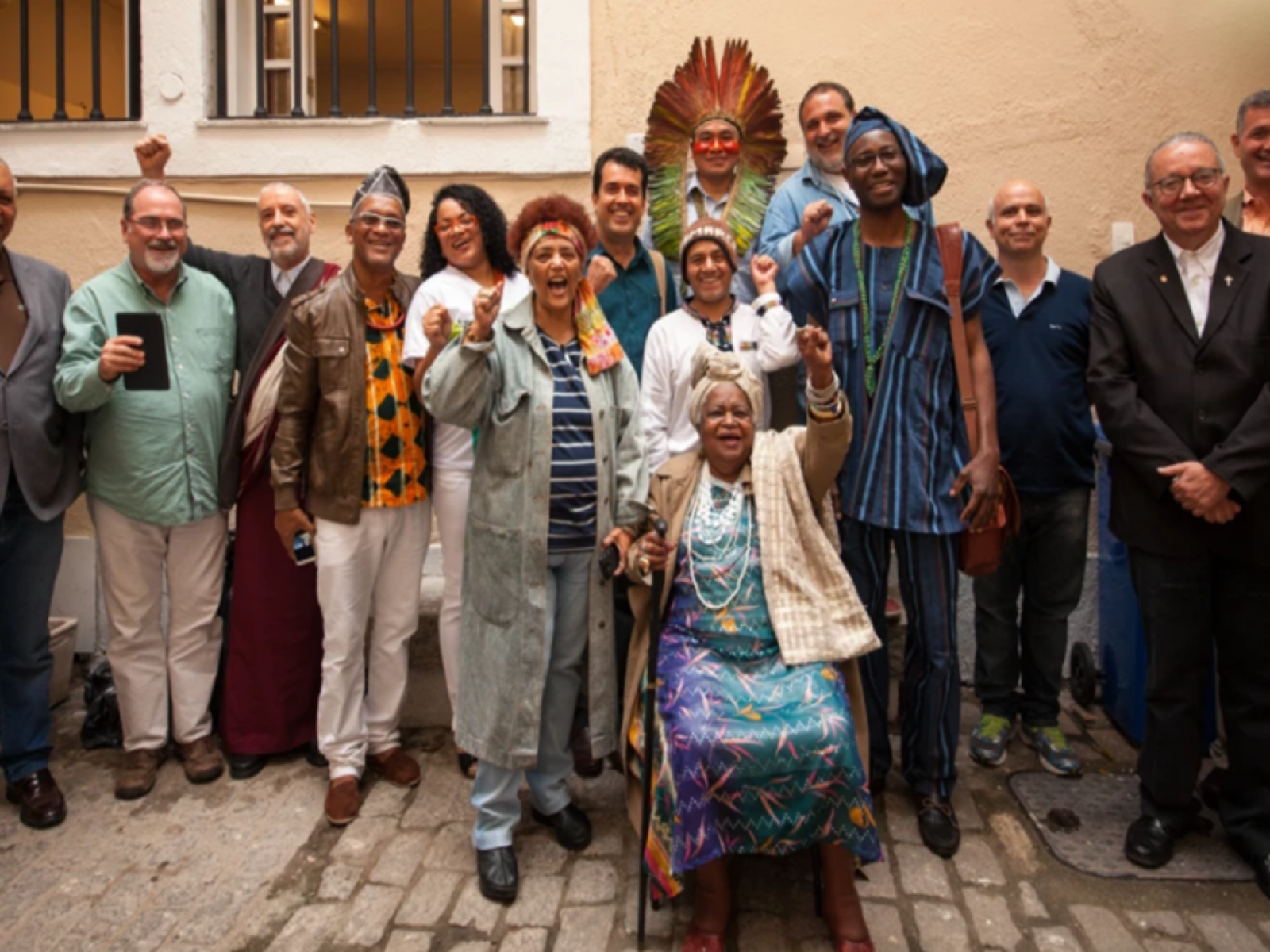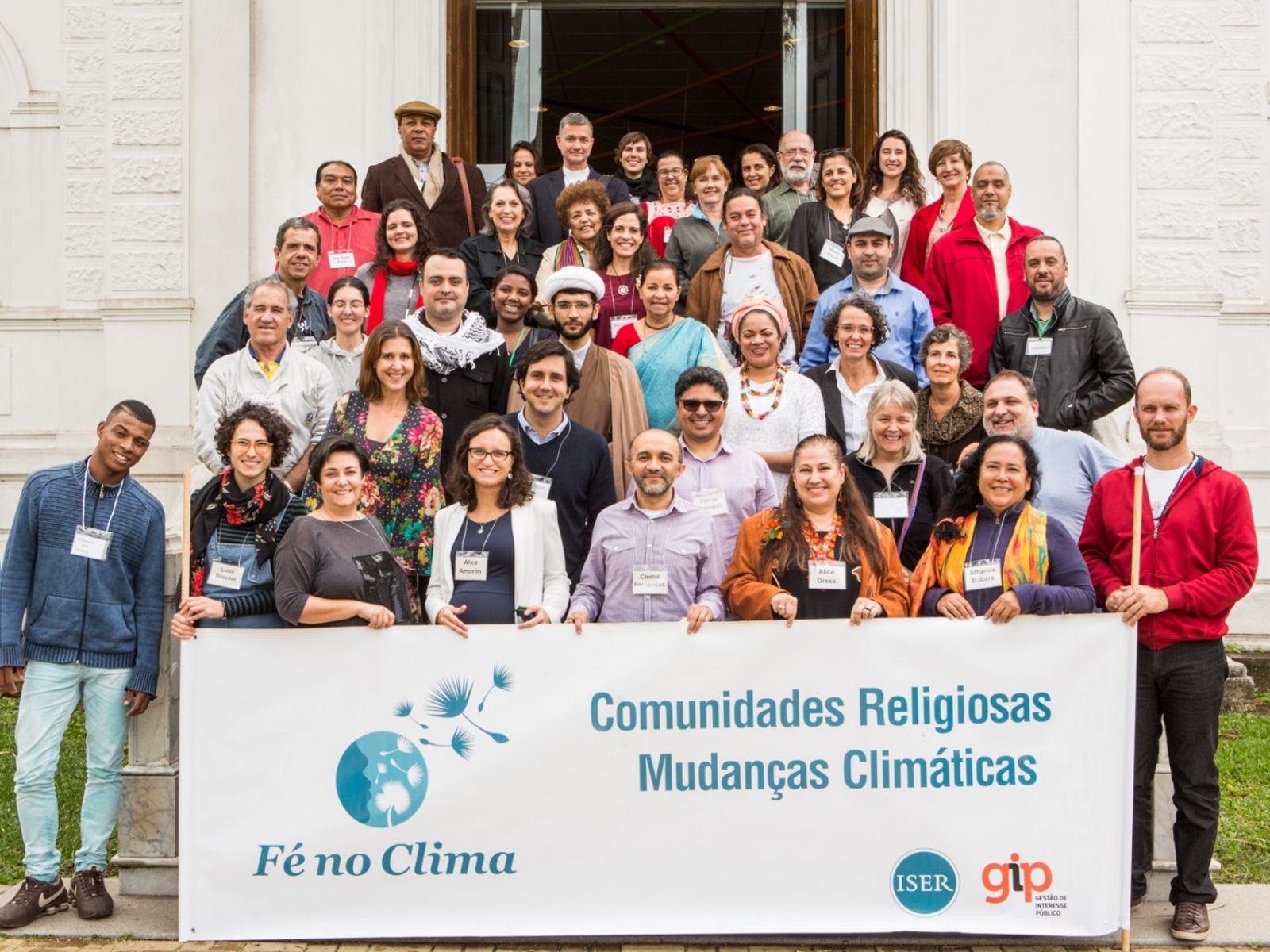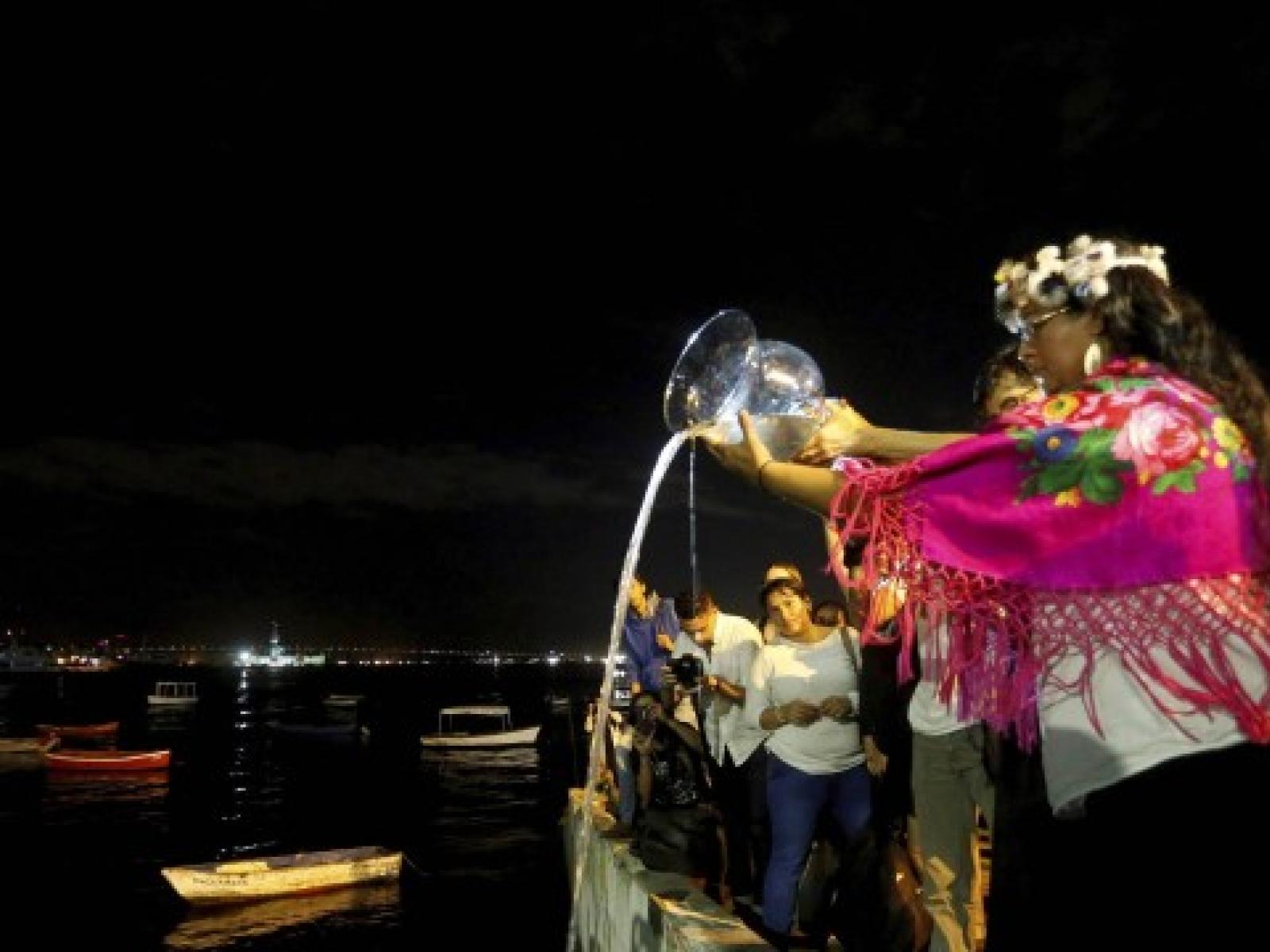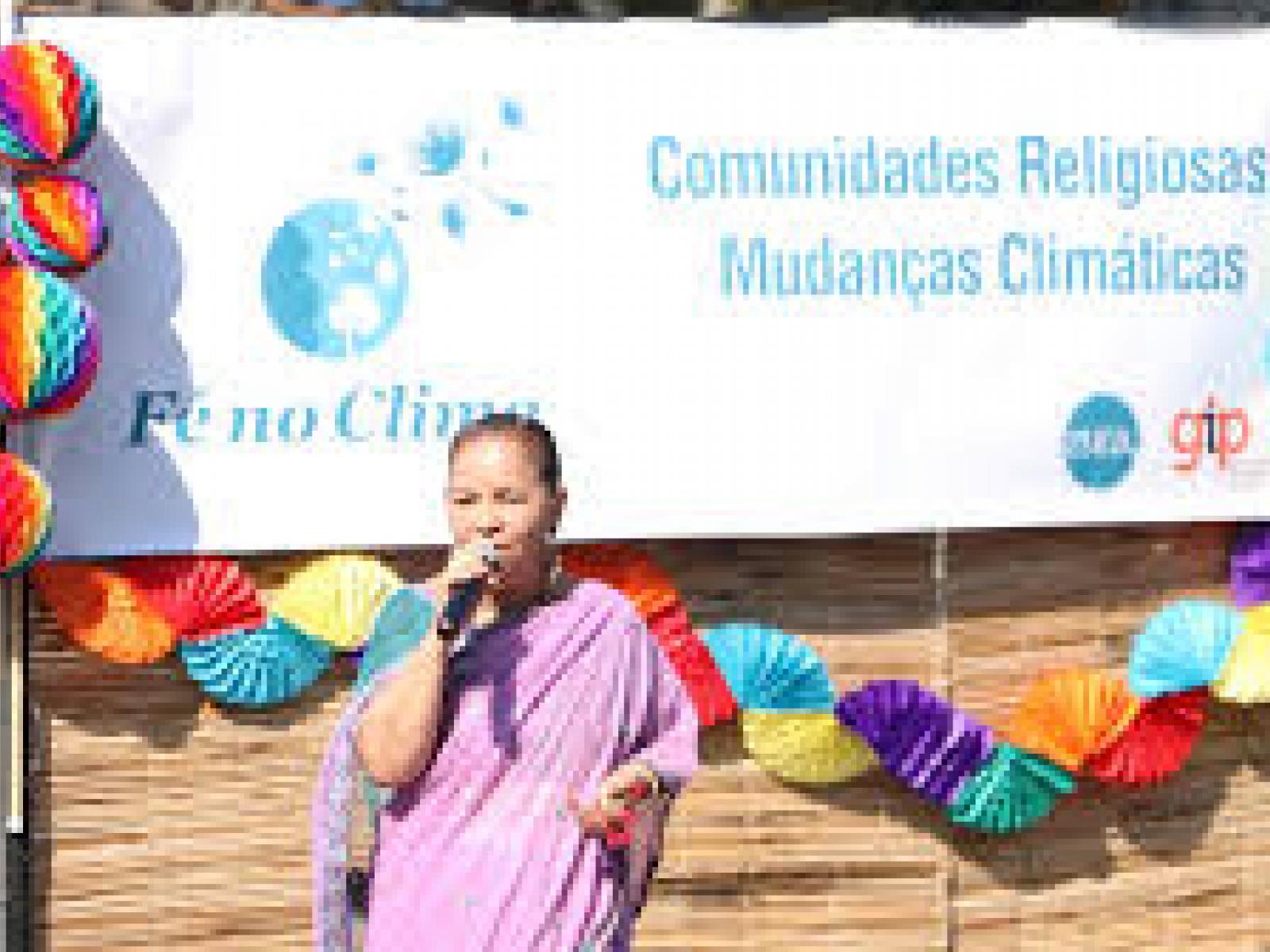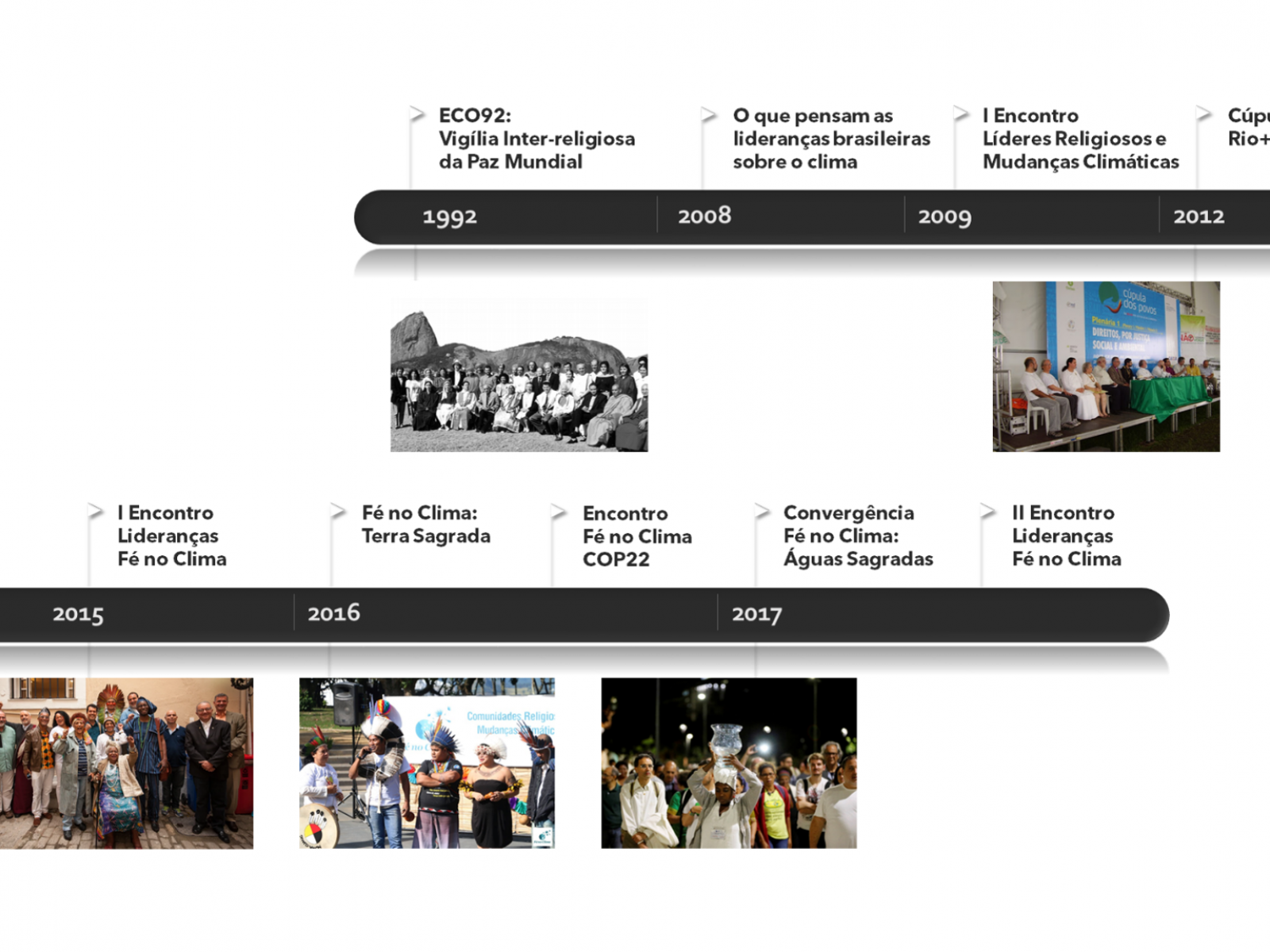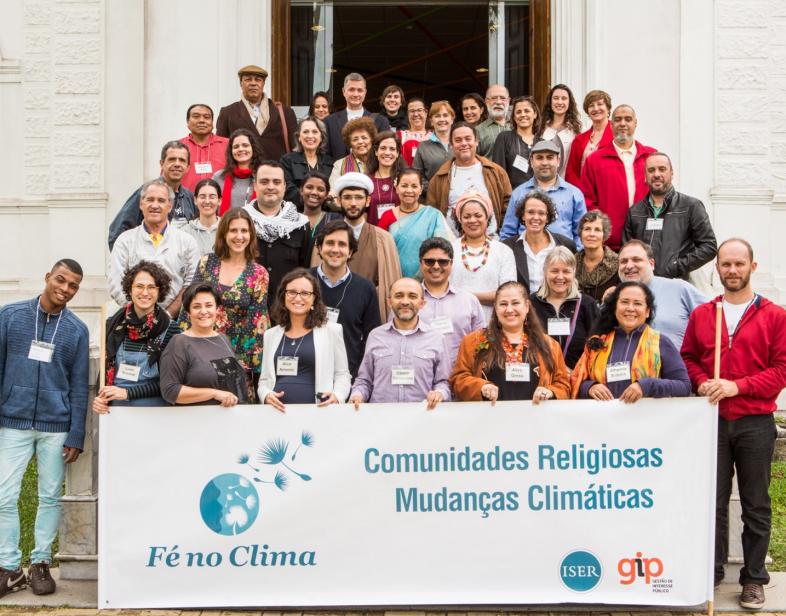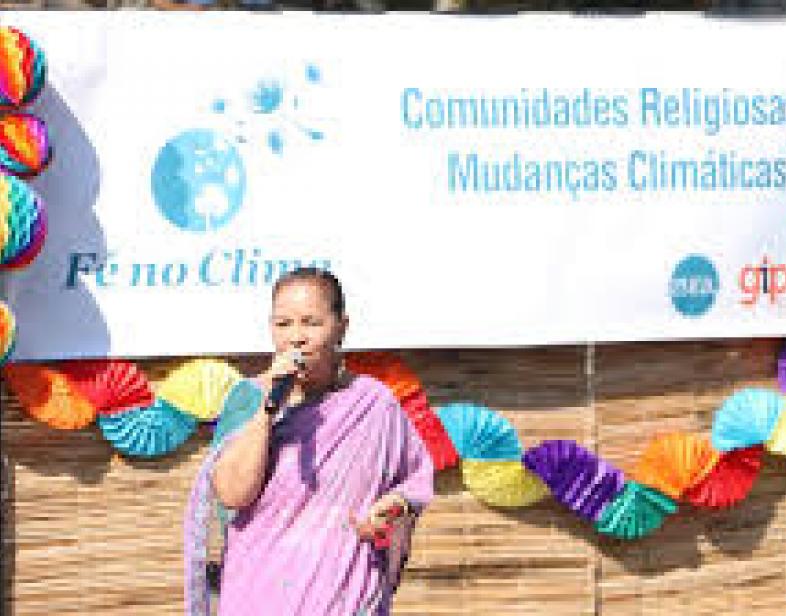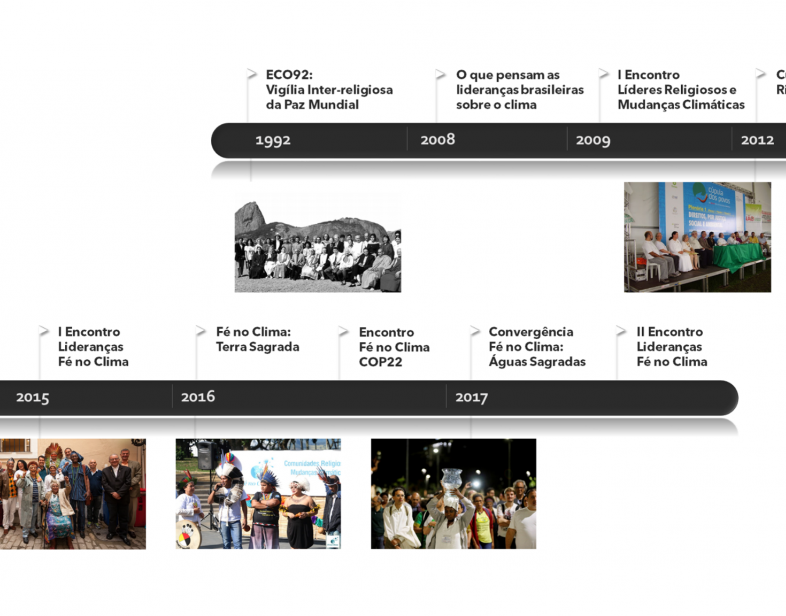An Overview Of Our Solution
In 2015, ISER and GIP launched the “Fé no Clima Initiative: religious communities and climate change”. The initiative brought together leaders of diverse religious communities to discuss climate change, aiming to further the debate and generate mobilization and articulations capable of influencing public policies on this subject. The Declaration and Commitment was signed by the leaders and given to authorities such as Pope Francis – who recognized the importance of the multi-religious initiative – and the former Minister of the Environment, Izabella Teixeira, in order to show the positioning and the commitment of religious communities in this area. In subsequent years seminars, meetings, convergence, and mobilization of religious leaders and scientific, environmental and youth communities of Latin America were organized.
- Population Impacted: At least 3200 participating directly
- Continent: South America
Last name
Organization type
Context Analysis
Brazil is seen as a major issue in the fight against climate change, most of which is needed to combat the phenomenon in the Amazon, the country's main source of greenhouse gas (GHG) emissions. However the protection of the environment in the country is still seen as being at the service of economic growth and social inclusion. This makes it essential that broadening the engagement of Brazilian society with the theme that has such a complex nature and the interconnected demand for fundamental rights guarantees such as access to water, health, safety, food, among others. Besides that, the religious leaders’ influence on costumes and public opinion can be a positive tool for the awareness of climate change consequences and the need of adopting new behaviours. However, this subject is still rarely addressed by our religious leaders and the idea of leading by example has been highlighted by Pope Francis in the “Laudato Si” Encyclical about ethics and the preservation of the common house.
Describe the technical solution you wanted the target audience to adopt
The involvement of the religious segment in the climate change debate carries an important weight for the dissemination of the risks and the possible actions to mitigate the damages of the increase of the temperature in the globe. The proposal to offer qualified content, originating from environmentalists and scientists, to the appropriation of religious leaders has the fundamental purpose of being transformed into content to be distributed in religious spaces with the language and authority of these high leaders to their followers and faithful. Outreach in social networks and in religious spaces has the capacity to reach millions of people who have so far been largely removed from the issue of climate change. In addition to the virtual and face-to-face repercussion, it focuses on the capacity of advocacy on national and international public agendas, expanding the social partners working on the theme of climate change.
Type of intervention
Describe your behavioral intervention
ISER works through the “Fé no Clima” initiative, specialy in the field of behavioral intervention, promoting and strengthening dialogue among groups of different religious matrices, scientists and environmental activists aiming to create new narratives capable of spreading the discussions about climate change, linking scientific knowledge to the sacred aspect of nature in the religions. In this sense, the ISER seeks to combine two elements of great relevance and urgency: the religious segment, which has strong potential for social mobilization and insertion, as well as a great impact on the national and international political agenda, through leaders and young people of different religious traditions ; and the element of climate change with a global effect and its severe and growing daily consequences, which require both personal and governmental change of position through public policies.
As needed, please explain the type of intervention in more detail
Fé no Clima is a continuing collective effort to "empower sensitivities and engage diverse religious communities" to impact, from dialogue, on climate change policy, by bringing together leaders capable of speaking within and outside their communities of faith. Fé no Clima is focused primarily on religious leaders, that is, religious groups that have significant trajectories, are recognized and have a political voice for public advocacy. However, the initiative offers pathways to other essential relationships, thus dialoguing with climate scientists and environmental activists, building reflective and purposeful interactions between faith and science.
Describe your implementation
Since its foundation, the Fé no Clima has a network vocation. The institutional design of the initiative is clear: it must be able to articulate leaderships, and, through them, reach the bases of socio-religious movements and environmentalists. However, this multi-institutional reach only succeeds from the autonomy that each network institution has to generate unfolding from experience in the initiative. Ideally, the common guiding concepts described above would be the substratum on which such leaders would lean to bring the message to their own communities. In 2015, the First Fé no Clima Meeting gave rise to yet another series of articulations outside the initiative. The religious leaders present, coauthors and signatories of the Declaration and Commitment Fé no Clima, began to appear as the foundations of the initiative and to represent its precepts beyond it. Starting in 2016, a series of actions reinforced the presence of the initiative in different segments of Brazilian civil society, and gradually articulated with actors from Latin America who work on the theme. A network composed of organizations from Latin American countries that attended COP 22, with this agenda. In 2017 the initiative turns to the expansion of its horizons, on the one hand, welcoming, and, on the other hand, to the encounter of raw initiatives around the world. The Fé no Clima Convergence: Sacred Waters, held in Rio de Janeiro in May 2017, was the result of this connection with social and environmental justice networks in Latin America, resulting in the Fé no Clima Convergence: Sacred Waters, and broadening the international dimension of the initiative. These actions led to the invitation to signatories of the Fé no Clima Commitment and declaration to join the launch of the Interfaith Rainforest Initiative, promoted by the Norwegian government in partnership with UNDP in June 2017. One of our leaders were present at founding of the Inter-religious Initiative for Tropical Forests in Oslo.
External connections
As stated above, Fé no Clima has a network vocation. The Fé no Clima council is formed by 25 senior religious leaders, who have a wide audience reach and great power of influence in their respective religions. Some of them are the lutheran priest Lusmarina Campos (who has been fighting for religious tolerance and women’s right of abortion in Brazil), the priest Ariovaldo Ramos (who has been invited by the UNDP for the Rain Forest Initiative in Oslo), the Umbandist Leader and sociologist Flávia Pinto, the spiritist and environmental journalist André Trigueiro, among others. Also the scientist Antonio Nobre, the journalist Sonia Bridi, the enviromentalist Rachel Biderman, among others. Some of our partner organisations, are the Instituto Clima e Sociedade, Gestão de Interesse Público (GIP), UNDP, GreenFaith, Movimento Inter Religioso, Koinonia, SOS Mata Atlântica, Ibase and others.
Who adopted the desired behaviors and to what degree?
The Declaration was signed by the leaders and given to authorities such as Pope Francis and the former Minister of the Environment, Izabella Teixeira, in order to show the positioning and the commitment of religious communities in this area. Since then, Fé no Clima has supported, organized and participated with other partners in interfaith advocacy activities such as:´´Sacred Village,’’ ´´Walk in Defense of Religious Freedom,” “Holy Earth,” “Vigil of Dignity”, “Climate Change Forum and Social Justice”. Thus, the initiative has been establishing itself and mobilizing a plural and diverse network that works in synergy for the common good of the planet. As a result of these actions, in 2017, in partnership with the American NGO GreenFaith, carried out the multi-faith convergence “Fé no Clima: Holy Waters,” aiming to strengthen and engage an interreligious network of 50 young people from 17 Latin American countries with local action and advocacy on agendas related to environmental issues.
How did you impact natural resource use and greenhouse gas emissions?
There is no evidence of impact on greenhouse gas emissions so far, the purpose of the initiative so far is intended to include and change understanding of a significant portion on the effect of climate change. It is more of an impact on communities and their daily habits. Water saving, light. Quality of food and environmental preservation. Initiatives such as installing clean energy in churches and religious temples, mechanisms for reusing water and producing agricultural foods through religious communities are some of the measurable, pedagogical and multiplier examples. In addition to the direct impact on production and activity in the greenhouse effect, there is a strong expectation of the impact on the public agenda and consequently the goals of governments and companies.
What were some of the resulting co-benefits?
In addition to the impacts on environmental preservation, the project also made it possible to reflect on a subject that has been highlighted in Brazilian society, religious intolerance. The proximity of multiple religions and consequent recognition and a common cause, the environment, has brought important instruments in promoting respect and religious tolerance within each religious community participating in the project.
Sustainability
This initiative requires financial resources to stimulate the network coordination through meetings and production of communication materials and teaching, especially in the next four years, after that the project has strong potential to get funding by mobilizing participants and members themselves religious This initiative tends not to receive resources from governments because it involves the challenge of influencing government policy in the field of climate change, with private foundations practicing social responsibility.
Return on investment
Throughout the 3 years the Fé no Clima received a total of 97 thousand dollars (with variable change in national currency), and its main investments focused on passages and logistics to bring religious leaders from Brazil, Latin America and the US to meetings held in Rio de Janeiro. Maintaining a lean and plural team, this initiative counts on a significant volunteer engagement of its participants, since none of them receives any resources to participate. The previous resources received and current attended to the fundamental process of structuring a Brazilian network and a network still embryonic international.
How could we successfully replicate this solution elsewhere?
This is an initiative that very recently reaches the condition of replicability in other places and gain on a larger scale, so there have not been experiences so far in other countries. Its social technology provides for replication in different scenarios, since it deals with global themes and universal religious language. Thus, all the material and methodology elaborated is available to other actors in the field of civil society, religion and science as a matter of priority. Challenges, which also serve as stimulators, are international events dealing with climate change such as COP and major international events, so these support of communication and proposal material should be in tune with the debates and guidelines of each moment.
